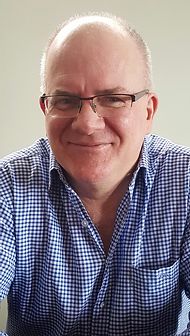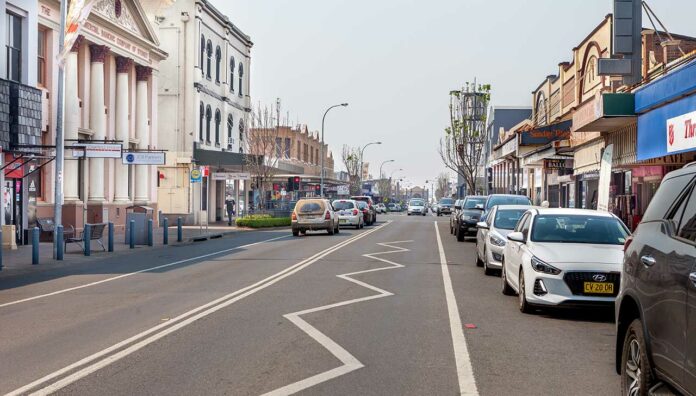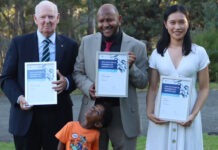Community pharmacist. Business owner. Pharmacy broker. Mentor. Lecturer. These are all titles Luke Kelly FPS has held during his 40-year pharmacy career.
While the roles have been diverse, they all come back to the same thing: a desire to create connections, whether it’s with patients, other pharmacists or young students just starting out.
‘I always knew pharmacy was for me because of the mix of working with different people and interacting with them, as opposed to working by myself,’ Mr Kelly, from New South Wales’ Hunter region, told Australian Pharmacist.
‘I most enjoy engaging with people. I’ve always really enjoyed working in the community.’
Today, he runs a pharmacy broker service with his wife Tanya, but it goes beyond facilitating the buying and selling of businesses.
‘I’ve been in situations where I’ve mentored people out of financial hardships, and also partnership difficulties,’ Mr Kelly said.
‘I suppose consulting is the word for it, but it feels like a lot more than that. One of my skills seems to be working out what drives people and getting back to the core of the problem.’
Community minded

Mr Kelly, who was recently named a Fellow of PSA, graduated with a Bachelor of Pharmacy from the University of Sydney in 1981 and has spent the majority of his career in the Hunter region, owning three pharmacies over 30 years alongside his wife.
‘[Buying a pharmacy] is kind of what you did – it was the career progression,’ he said.
‘I learnt early on to work with people who had skills I didn’t. You have to learn that you’re not capable of everything, and be smart about what you can and can’t do. You need to know your limitations.’
The pair sold their last pharmacy in 2016 after wanting to take on a new challenge. This also meant Mr Kelly could devote more time to his role as President of the Newcastle Hunter Valley Pharmacists Association (NHVPA) and begin teaching at the University of Newcastle.
The NHVPA supports more than 400 members across 170 pharmacies, from Taree on the mid-north coast down to the Central Coast and to Murrurundi further inland, and Mr Kelly is a vocal advocate for its members.
At the height of the pandemic, he approached local councils to allow for special parking outside pharmacies in the region.
‘This was when people were really concerned about isolating,’ Mr Kelly said.
‘All the councils in the Hunter Valley were amenable and put two special parks out the front of the pharmacies.’
He has also facilitated a partnership between PSA, pharmacists and the Hunter New England Central Coast Primary Health Network, providing opportunities for pharmacists to work in multidisciplinary teams and helping the pharmacist workforce to better service the needs of the community.
Living and working in a regional area helps forge close community ties and a spirit of camaraderie.
‘We tend to support each other really well,’ Mr Kelly said.
‘There’s a bit of healthy competition, but I think we’re fairly collaborative. We understand that the profession’s got more to gain by us working together rather than beating each other up.’
Passion and pride
Mr Kelly is passionate about pharmacists practicing to the full extent of their abilities, and enjoys helping to prepare students for the real world through the Clinical Leadership university course he teaches.
He describes this as an ‘intentionally practical’ course that looks at the clinical obligations of pharmacy along with the business aspects and economic realities of running a community pharmacy.
‘It’s beginning the mentor process,’ he said.
‘We cover things like HR and how to deal with customers and staff … It’s a little taste of what their life is going to be like.’
He is also the pharmacist mentor for the PharMIbridge trial, which aims to empower pharmacists to better support consumers with severe and persistent mental illness (SPMI).
Run by Griffith University, the University of Sydney, PSA and the Pharmacy Guild of Australia, the trial is testing the effectiveness of a person-centred, goal-oriented and flexible pharmacist-led support service for people living with SPMI, compared to a standard in-pharmacy medicine review service.
‘The future isn’t purely about drug supply, it’s about proper, health-directed services,’ Mr Kelly said.
‘That’s why I’m engaged in the PharMIbridge program – it’s about providing evidence that what we do is worth it. As pharmacists, we probably don’t toot our own horn enough.’
Pharmacists are great collaborators, Mr Kelly said, and help guide people in their health journeys.
‘We’re always the first port of call and, as COVID-19 shows, we stand up and do what needs to be done,’ he said.
‘The great example is that we work at deprescribing, taking people off medicines. Not only do we not get paid to do that, but we actually lose income. We do the right thing despite the fact it will cost us. I think we should be proud of that.’



 Dr Peter Tenni[/caption]
Dr Peter Tenni[/caption]
 How should we deprescribe gabapentinoids, according to the Maudsley Deprescribing Guidelines[/caption]
How should we deprescribe gabapentinoids, according to the Maudsley Deprescribing Guidelines[/caption]



 Pharmacists have always prescribed, but they have the potential to prescribe much more
Pharmacists have always prescribed, but they have the potential to prescribe much more







